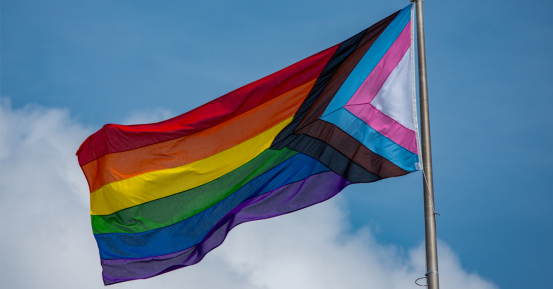By:
Published Date
Rebels with a Cause
Bonds of friendship and activism still strong after 20 years
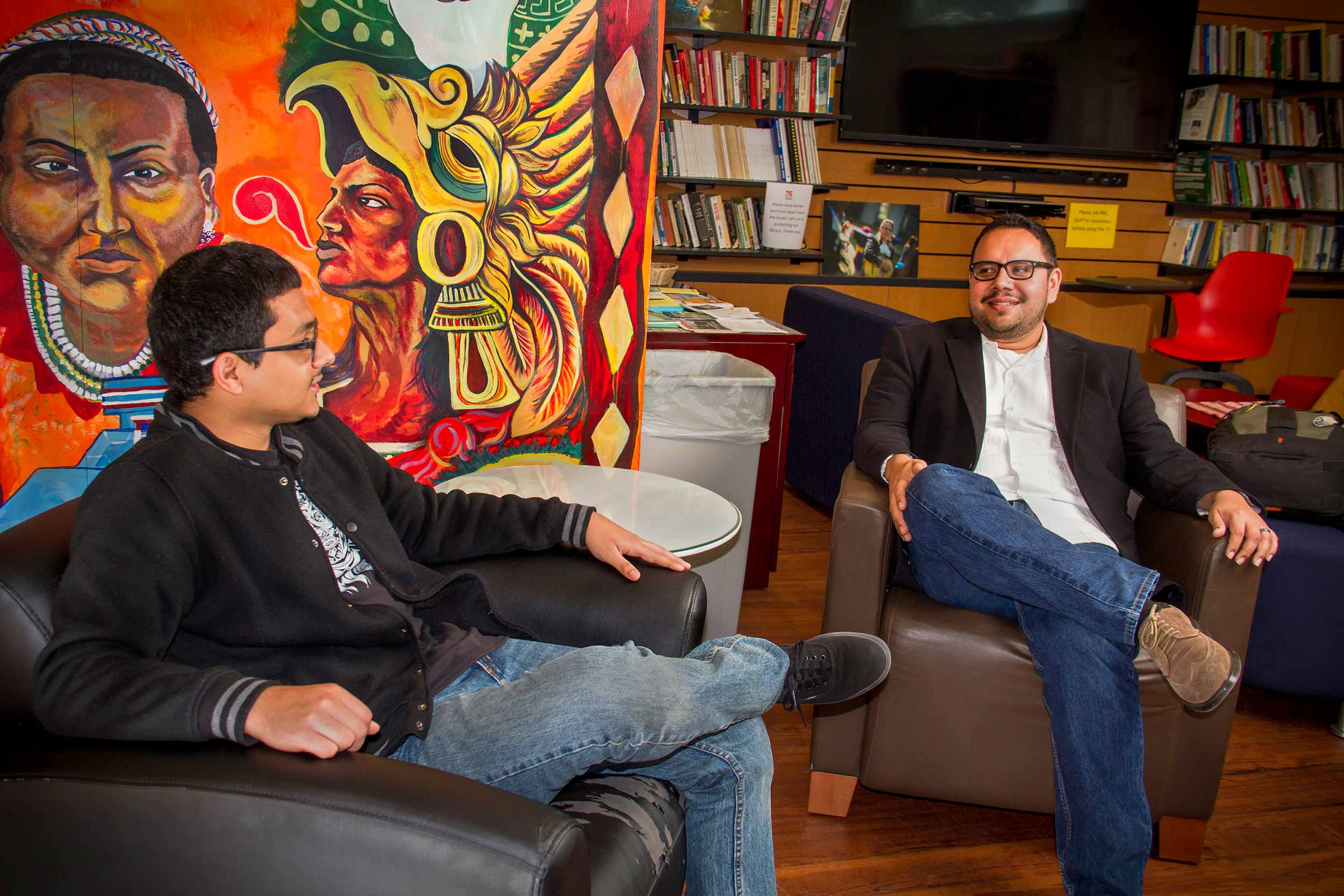
When Gerardo Arellano attended UC San Diego more than 20 years ago, campus community centers were just sprouting. Arellano is now director of the Raza Resource Centro, and students like Christian Sanabria—step-son of Arellano’s best friend from college, Gabriel Agundez—have a place to collect, grow and lead. Photos by Erika Johnson/University Communications
They clicked immediately, as though long-lost brothers. Gerardo Arellano and Gabriel Agundez were best friends and roommates who bonded over house music and political activism as undergraduates at UC San Diego more than 20 years ago. They reunited at a recent event at the campus Raza Resource Centro, which Arellano now directs. Agundez was there with his step-son, Christian Sanabria, a new transfer student. He told Arellano he was entrusting him—and the university—with his son, to gain the student experience they lacked.
“I wanted Christian to know that if he ever needs help or someone to talk to, Gerardo always has the right words and will push him to do his best,” said Agundez, who went on to a career as a vocational trainer after UC San Diego. “I want him to be well-rounded and fully integrated into campus life, to become involved and find community at the Raza Resource Centro.”
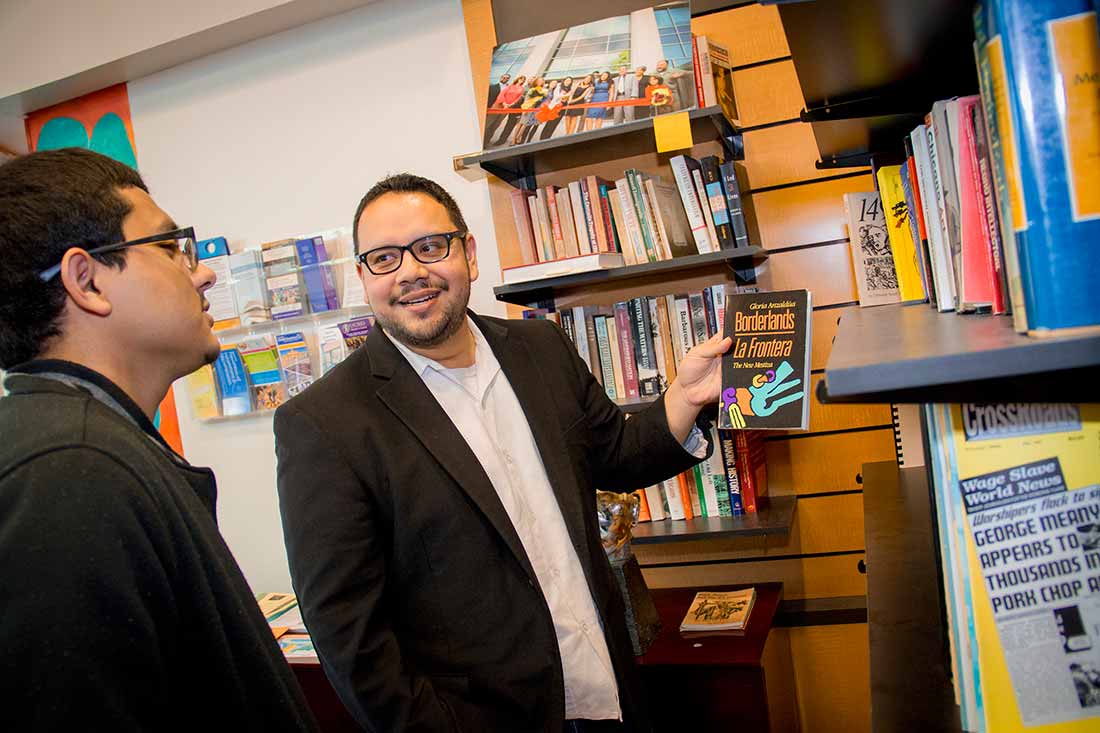
The Raza Resource Centro is one of the newest of the five campus resource centers where students can conduct research, examine issues surrounding diversity, make connections with peers and more.
The two friends reconnected at the Raza Resource Centro’s “Avanzando Juntos” event, a transition program where new students can learn about strategies for academic, social and cultural success and parents can discover how best to support their student in college. During the program, Agundez imparted to Christian the significance of the new campus community center as a space to collect, grow and lead—something he and Arellano did not have as students during their undergraduate tenure.
“Just having the Centro there gives me peace of mind to know that I have a place on campus where I can go to relax or get help if needed,” said Christian, who transferred to UC San Diego from San Diego State University and is majoring in public health. “UC San Diego was always the school I wanted to go to when I was young. Learning that my step-father went here only added fuel to the fire. He inspired me a lot and learning about his time here really motivated me to strive to succeed.”
A web of memories
Arellano and Agundez were both Ethnic Studies majors, a department that had just taken shape at UC San Diego in 1990. They shared classes and a desire to expand their voice, especially on a campus that was not yet very diverse. The first Campus Community Center—the Cross-Cultural Center—was established in 1995 following a period of student activism, and was housed on the margins of campus in an old mailroom building.
“I didn’t know that I was underrepresented until I got here,” explained Arellano, who attended UC San Diego from 1994-99. “I remember my first year, going into my chemistry class and being the only Latino/Chicano there. But I didn’t let that deter me from my focus of getting a degree. I used it as motivation, as an opportunity to have conversations about what equity and social justice should look like.”
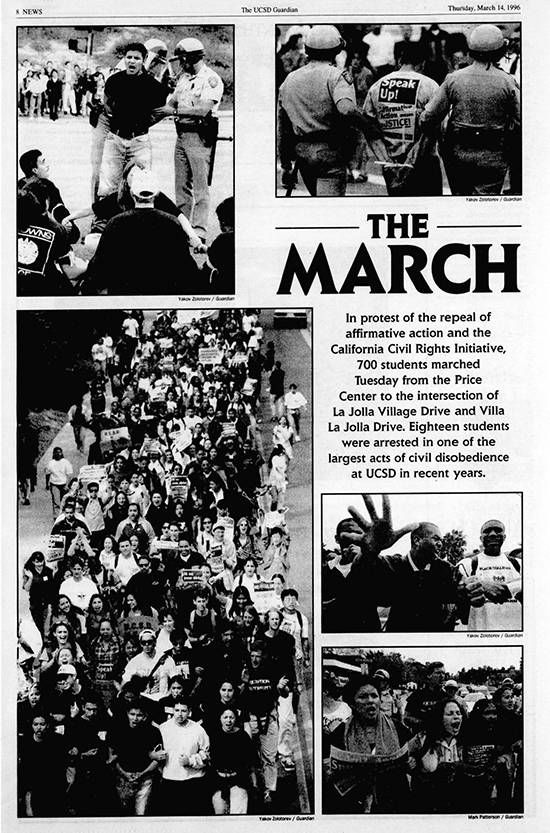
Arellano and Agundez connected over political activism efforts, taking part in rallies and protests, including ones in response to the repeal of affirmative action in 1996.
Agundez recalled that Arellano first approached him during a sociology class, and they soon became friends. He remembers how Arellano was like a big brother, mentoring him on the “dos and don’ts” of college life. They united in “Rebel” culture, a socio-political movement of marginalized Latino youth that centered around house music, fashion that redefined gender norms and artistic dance expression. They also marched in protests, including ones in response to the repeal of affirmative action in 1996.
“Gerardo felt like family immediately; we came from similar backgrounds,” said Agundez, who was born in El Centro, Calif. and grew up in Calexico, Calif. “We did everything together. We made our own community spaces off campus. The Cross-Cultural Center was not easy to find. Unless you knew where to look, you could just walk past it.”
The two friends later joined a group of students who were interested in writing from a multicultural perspective concerning issues such as social barriers and gender definitions. They helped start a publication called “Spiderwebs,” which experienced wide readership and was awarded office space and a generous budget by the university. They defined themselves as a “…collective of cultural workers trying to decolonize our minds, bodies and spirits,” and their publication as a place where they could “…weave our knowledge in an effort to capture our complexities within someone else’s web.”
The publication helped foster community among the writers, and served as an outlet to strengthen and validate oneself and each other. “It was fun to be in community with students who came together to write collectively, to really apply what we were learning in the classroom,” said Arellano, who found sanctuary in writing. “It allowed us to create voice, agency and collectivity across communities.”
It was also a way to sharpen writing skills, according to Agundez. “Writing just came easy after that experience,” he said. “Gerardo had a way with words, and I tried to emulate his style. His mentorship made my years at UC San Diego much easier; he was a big influence in my life.”
Redefining the Latino/a student experience
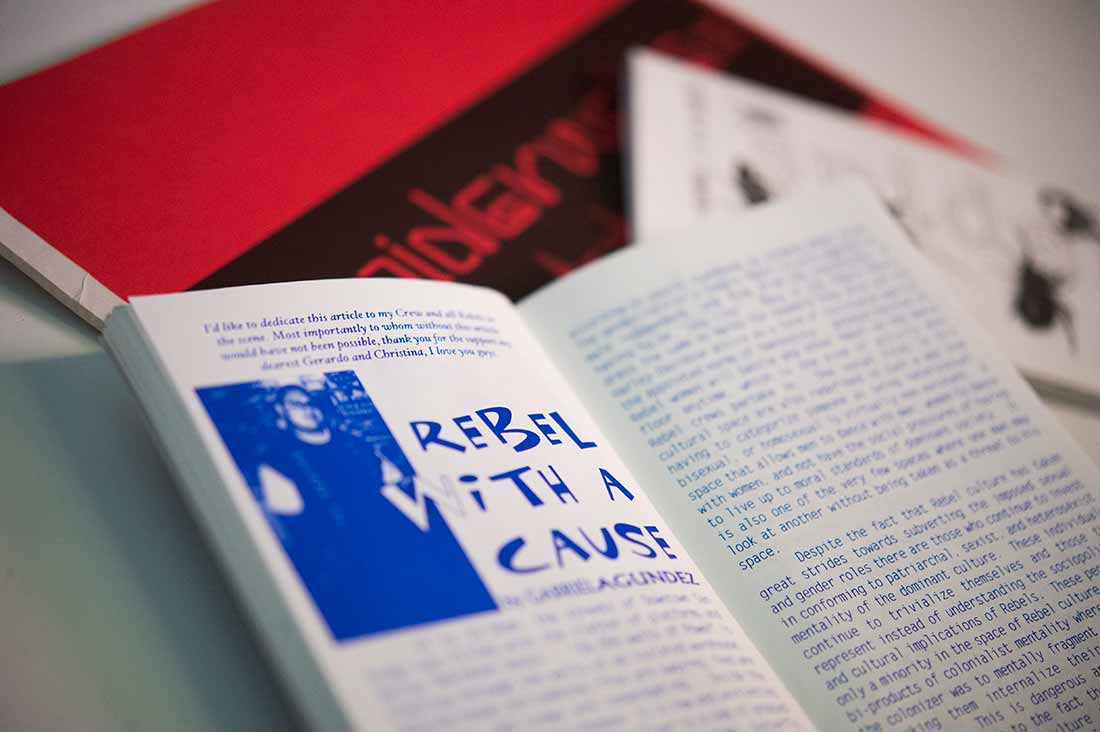
Arellano and Agundez were part of a group of students at UC San Diego who created a magazine called Spiderwebs that featured essays, poems and art addressing issues such as social barriers and gender definitions.
Arellano, who grew up in Pomona and is first in his family to attend and graduate from college, went on to earn a doctorate from UC Berkeley in Comparative Ethnic Studies. He became a faculty member at California State University, Fullerton where he served as the graduate learning specialist coordinator of program research and monitoring to help increase the number of Latinos in graduate school before he returned to UC San Diego to lead the Raza Resource Centro in 2014.
“I’ve always been passionate about increasing representation of Latinos in advanced degree fields,” said Arellano. “The exciting part of working at the Raza Resource Centro is being in community with students and establishing partnerships across campus. The goal is to influence the number of students who go on to graduate and professional school and launch student leaders at national conferences. I love seeing my students succeed; every year, we coach our students to compete for a spot in nationally recognized internship programs.”
The Raza Resource Centro, among the newest of the campus community centers, is one of five spaces on campus dedicated to equity, diversity and inclusion. In 2014, a grand re-opening celebration was held in a newly renovated space on the first floor of the Student Services Center. The Centro offers a place for all students to find community, discover opportunities to develop academically and professionally, as well as engage in interactive learning about the diverse Chicano/a –Latino/a history and culture.
To learn more about the Raza Resource Centro, you can visit their website here. For more information about the UC San Diego Campus Community Centers, go here.
Share This:
You May Also Like
Stay in the Know
Keep up with all the latest from UC San Diego. Subscribe to the newsletter today.
